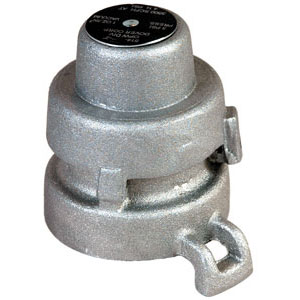Pressure Transmitters: Accurate and Reliable Pressure Measurement for Industrial Applications

Strong 8k brings an ultra-HD IPTV experience to your living room and your pocket.
Pressure transmitters are essential components in industrial automation and process control systems. Designed to accurately measure the pressure of gases or liquids and convert that data into an electrical signal, pressure transmitters ensure the safe, efficient, and consistent operation of critical systems across a wide range of industries—including oil & gas, water treatment, manufacturing, and HVAC.
What Is a Pressure Transmitter?
A pressure transmitter is an electronic device that senses pressure and transmits a proportional signal to a control or monitoring system. These transmitters are designed to handle various types of pressure—gauge, absolute, or differential—and provide output in forms such as 4-20mA, 0-10V, or digital communication protocols like HART or Modbus.
How Do Pressure Transmitters Work?
Pressure transmitters consist of a pressure sensor and signal conditioning electronics. The sensor detects pressure changes and converts them into a small electrical signal. The transmitter then amplifies and processes this signal into a standardized output, which can be used by control systems, PLCs, or data loggers to monitor and manage processes in real time.
Applications of Pressure Transmitters
Oil & Gas Industry
Wellhead monitoring
Pipeline pressure management
Storage tank level measurement
Water & Wastewater Treatment
Pump and valve control
Tank and reservoir monitoring
Flow measurement through differential pressure
Manufacturing & Industrial Automation
Process control in chemical plants
Hydraulic and pneumatic systems monitoring
Equipment diagnostics
HVAC Systems
Air duct pressure monitoring
Filter condition monitoring
Boiler pressure control
Food & Beverage Industry
Hygienic process control
Pressure measurement in CIP/SIP systems
Key Features of Pressure Transmitters
High Accuracy and Stability
Robust Construction for Harsh Environments
Wide Measuring Range (low to high pressures)
Explosion-Proof and Intrinsically Safe Models
Analog and Digital Output Options
Ingress Protection (IP65, IP67, IP68)
Temperature and Vibration Resistant
Types of Pressure Transmitters
Gauge Pressure Transmitters: Measure pressure relative to atmospheric pressure
Absolute Pressure Transmitters: Measure pressure relative to a vacuum
Differential Pressure Transmitters: Measure the difference between two pressure points
Smart/Digital Transmitters: Enable advanced diagnostics and digital communication
Benefits of Using Pressure Transmitters
Real-time process monitoring and control
Improved system safety and reliability
Reduced downtime through predictive maintenance
Enhanced energy efficiency in operations
Compliance with industry standards (e.g., AS/NZS, IECEx, ATEX)
Choosing the Right Pressure Transmitter
When selecting a pressure transmitter, consider the following:
Application type and required pressure range
Compatibility with the process media
Environmental conditions (temperature, humidity, dust)
Electrical output and communication protocol
Certifications needed for hazardous environments
Mounting and installation requirements
Conclusion
Pressure transmitters are crucial for accurate, stable, and continuous pressure measurement in industrial processes. Their versatility and reliability make them indispensable for maintaining safety, efficiency, and compliance across various sectors.
Looking for Pressure Transmitters in Australia?
We supply a comprehensive range of high-performance pressure transmitters suitable for diverse applications. Contact our expert team today for assistance in choosing the ideal transmitter for your needs.
Pressure transducers are indispensable tools for safe and efficient pressure measurement across many sectors. Their ability to deliver accurate, real-time data makes them a critical part of industrial monitoring and automation systems.
Looking for Pressure Transducers in Australia?
We offer a wide selection of high-quality pressure transducers designed for industrial, commercial, and scientific applications. Contact our team today to find the right sensor for your system and ensure reliable performance every step of the way.
A pressure transmitter is an electronic device that senses pressure and transmits a proportional signal to a control or monitoring system. These transmitters are designed to handle various types of pressure—gauge, absolute, or differential—and provide output in forms such as 4-20mA, 0-10V, or digital communication protocols like HART or Modbus.
How Do Pressure Transmitters Work?
Pressure transmitters consist of a pressure sensor and signal conditioning electronics. The sensor detects pressure changes and converts them into a small electrical signal. The transmitter then amplifies and processes this signal into a standardized output, which can be used by control systems, PLCs, or data loggers to monitor and manage processes in real time.
Applications of Pressure Transmitters
Oil & Gas Industry
Wellhead monitoring
Pipeline pressure management
Storage tank level measurement
Water & Wastewater Treatment
Note: IndiBlogHub features both user-submitted and editorial content. We do not verify third-party contributions. Read our Disclaimer and Privacy Policyfor details.


